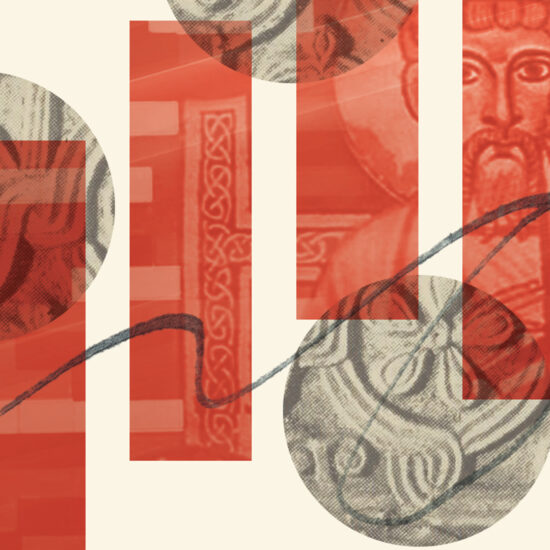 Rely on God
Rely on God
Formations: February 4, 2018
Scripture: Hebrews 2:10-18
 Michael K OlmstedThe idea of God suffering on our behalf on a cross as an instrument of our salvation seems lost to our generation. Sitting in a woman’s office, I noticed she had a pretty picture of a cross on a rugged hilltop, but instead of signs of crucifixion, the cross was elaborately draped in flowering vines with butterflies floating about. When I asked if she was a Christian, she said, “Yes, but the idea of Jesus dying on a cross was not part of her church’s beliefs – because God is love!” When visiting with an international student I asked what he knew about the Christian faith? “Not much,” he said, “except it seems very odd that a god would want his son to be brutally killed on a cross!”
Michael K OlmstedThe idea of God suffering on our behalf on a cross as an instrument of our salvation seems lost to our generation. Sitting in a woman’s office, I noticed she had a pretty picture of a cross on a rugged hilltop, but instead of signs of crucifixion, the cross was elaborately draped in flowering vines with butterflies floating about. When I asked if she was a Christian, she said, “Yes, but the idea of Jesus dying on a cross was not part of her church’s beliefs – because God is love!” When visiting with an international student I asked what he knew about the Christian faith? “Not much,” he said, “except it seems very odd that a god would want his son to be brutally killed on a cross!”
The complexities of God’s love and grace cannot be completely understood by the human mind. How can God be three persons in one … eternal yet able to enter the world as one of us … judge us and love us at the same time … become one of us in authentic humanity … and defeat evil by dying? You will never know all the answers, but in Christ and his living, dying and living again, you can see how deeply God loves us and how far he is willing to go so we can experience his love! This is what Hebrews is all about: “It was fitting that God, for whom and through whom all things exist, in bringing many children to glory, should make the pioneer of their salvation perfect through sufferings” (v.10).
The English word “pioneer” stirs mental images of hardy men and women cutting through the virgin forests of unsettled America or heading west in their Conestoga wagons to conquer unexplored lands. But the Greek word translated “pioneer” may also be translated as “author” (Acts.3:15), “leader” (Acts 3:31), “trailblazer” or “champion.” Classical Greek uses this word as “champion or rescuer” of the people. This Greek term is a powerful and positive picture of Jesus as the one who has gone where none other has gone, done what no one else could do, the pioneer who opens before us all the love and promises of God. Why would God do this? Can he not appear on the ramparts of heaven, destroy all evil with one breath, subdue every heart with his power, rank us as his docile minions and create a perfect kingdom? We have trouble sorting out and putting what we know about God into a perfect image, but we do keep trying!
The writer of Hebrews offers us a wonderful insight into God’s gift of Jesus the Christ, our hope of salvation. Jesus has become flesh and blood with us so he could “destroy the one who has the power of death, that is, the devil, and free those who all their lives were held in slavery by the fear of death.” (vv. 14-15) And Jesus chose “to become like his brothers and sisters (us) in every respect, so that he might be a merciful and faithful high priest in the service of God, to make a sacrifice of atonement for the sins of the people” (v. 17). The Old Testament describes the priesthood, rituals and sacrifices that helped ancient Israel learn about God and live a blessed life. That religious system could never take the place of an individual’s love and trust in God. The Apostle Paul describes the Old Testament law as a “tutor to lead us to Christ” that has been completed or fulfilled by the coming of Christ (Galatians 3:19-26). Now Christ has come into our world as one of us, sharing our suffering, confronting our imperfections and ignorance, so we can live forever in the security of God’s love.
Our attempts to rationally explain Jesus’ death on the cross are never adequate. We may say Jesus took our sins upon himself and died in our place, that Jesus paid the ransom we could never pay, but the one word that offers the clearest understanding is grace. We see its definition most clearly in John 3:16: “For God so loved the world, that He gave his only begotten Son, that whoever believes in Him should not perish, but have eternal life.”
In verse 12 the writer quotes Isaiah 8:17-18, declaring that Christ trusted God through his days in this world, knowing that his death and resurrection would complete God’s plan. The language of the text presents life both now and in eternity as part of what God wants for us. The passion of Christ shows us the way to God. Although he does not define the phrase “sons of Abraham” in verse 16, given the text and the time of writing, it suggests that all who accept Christ are the true “sons (children) of Abraham” (Romans 4:16).
Jesus is described as “a merciful high priest” in the service of God, to make a sacrifice of atonement for the sins of the people (v. 17). A high priest was chosen from among the people to represent them in worship and offer sacrifices for their sin. But in Christ, God himself has offered the sacrifice no one else could make. When someone we love suffers we may want to share their burden or take it away, knowing we really cannot. But this is exactly what God has done for us in Christ!
Because Jesus has gone before us and taken upon himself our spiritual need, we are free: free from guilt and fear; free from hopelessness; free to live in grace and show others the way to God. Jesus is our champion, the one who leads us to God’s love, the one who has been tested and can show us the way to God (v. 18).
We are accustomed to artistic portrayals of Jesus as a handsome young man with beautiful hair and flowing robes, gathering children on his knee or blessing the sick. Have you ever considered Jesus may have looked like the discouraged father at the food pantry or your next-door neighbor? Can you imagine that in those moments when you helped someone in need or listened to a discouraged friend you might have resembled Jesus just a little? He went to the cross for you. Every day of his life Jesus was showing you how to live as a child of God and teaching you how much God loves you.
And that business about suffering that we think nobody understands – think again! Think about all Jesus endured, the disappointments and rejection, but also remember the joy he knew when he touched people with God’s healing grace. We only have so much time on this earth, so why not spend it loving God, caring for others and growing in faith? Life is so much better when you rely on God and share his love.
Retired after almost 50 years in pastoral ministry, Michael K. Olmsted enjoys family, supply preaching and interim work, literature, history, the arts and antiques.
Formations is a curriculum series from Smyth & Helwys Publishing, Inc. through NextSunday Resources.
The PDF download requires the free Acrobat Reader program. It can be downloaded and installed at https://get.adobe.com/reader (uncheck optional offers first).



